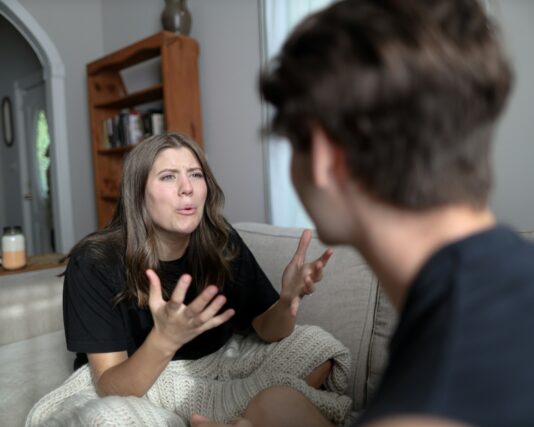We all need close, supportive relationships to thrive, but sometimes our attachments can veer into unhealthy territory.

If you find yourself constantly anxious about your relationships, sacrificing your own needs for other people, or feeling like you can’t function without your partner, it might be time to have a closer look at your attachment style. Unhealthy attachment patterns can lead to codependency, dysfunction, and a whole lot of heartache. Thankfully, by asking yourself some tough questions and being honest about your tendencies, you can start to build more secure relationships.
1. Do you constantly worry about being abandoned or rejected?

If the thought of your partner leaving or pulling away fills you with overwhelming anxiety and dread, it could be a sign of unhealthy attachment. Constantly seeking reassurance, checking in excessively, or imagining worst-case scenarios is exhausting for both you and your partner. While it’s normal to want stability and commitment, healthy relationships are built on trust and independence, not fear and clinging. Work on cultivating your own sense of self-worth and security, rather than relying on your partner to provide it.
2. Do you struggle to make decisions without your partner’s input?

It’s great to value your partner’s opinions and perspective, but if you find yourself constantly deferring to their judgment or seeking their approval for even small choices, it could be a red flag. Healthy interdependence means being able to think and act autonomously while still considering your partner’s needs and desires. If you’ve lost touch with your own intuition and preferences, it’s time to start exercising those decision-making muscles. Practice making small choices on your own and trust that your partner will respect your autonomy.
3. Do you neglect your own needs and interests to please your partner?

In any relationship, there will be times when you need to compromise or put your partner’s needs first. But if you find yourself consistently sacrificing your own well-being, passions, or boundaries to keep the peace or earn your partner’s approval, it’s a sign of unhealthy attachment. You matter just as much as your partner does, and a truly loving relationship will encourage you to prioritise self-care and personal growth. Start setting gentle boundaries around your time, energy, and interests, and trust that a healthy partner will support you in doing so.
4. Do you feel responsible for your partner’s happiness and well-being?

It’s natural to want to support and care for your loved ones, but if you find yourself feeling like it’s your job to fix your partner’s problems, manage their emotions, or shield them from any discomfort, it could be a sign of codependent tendencies. Healthy relationships are built on mutual care and respect, not one-sided caretaking. Remember that your partner is a capable adult with their own resources and resilience. Focus on being a supportive presence, not a saviour or martyr.
5. Do you struggle with jealousy and possessiveness?

A little bit of jealousy is normal in any relationship, but if you find yourself constantly suspicious of your partner’s interactions with other people, monitoring their behaviour, or trying to control who they spend time with, it’s a sign of unhealthy attachment. Trust is the foundation of any secure relationship, and without it, you’ll both be miserable. If you’re struggling with jealousy, take a hard look at the root causes — often, it stems from your own insecurities and fears, not your partner’s actions. Work on building self-confidence and trust in your own worth.
6. Do you feel like you’ve lost your sense of self in the relationship?

It’s easy to get swept up in the excitement and intensity of a new relationship, but if you find yourself neglecting your own identity, interests, and relationships in the process, it’s a red flag. Healthy love should expand your world, not shrink it. If you’ve stopped pursuing your own passions, spending time with friends and family, or expressing your authentic self, it’s time to reclaim your individuality. Remember, a strong sense of self is the foundation of any healthy relationship.
7. Do you feel like you need your partner to complete you?
 Source: Unsplash
Source: Unsplash It’s a romantic notion, the idea that we’re all wandering around with missing pieces until we find our perfect match. But the truth is, you are a whole, complete person on your own — a partner should enhance your life, not define it. If you feel like you can’t be happy, fulfilled, or secure without your partner, it’s a sign of unhealthy attachment. Work on cultivating your own sense of self-worth, purpose, and joy, independent of any relationship. A healthy partner will encourage and celebrate your wholeness, not exploit your vulnerabilities.
8. Do you struggle to express your needs and boundaries?
 Source: Unsplash
Source: Unsplash In any healthy relationship, both partners should feel safe and empowered to express their desires, concerns, and limits. If you find yourself biting your tongue, swallowing your feelings, or going along with things that don’t feel right to you, it’s a sign that your attachment style may be more passive or submissive than is healthy. Remember, your needs and boundaries are valid and important — a loving partner will want to hear and honour them. Practice speaking up for yourself, even if it feels scary at first. A relationship that can’t handle honest communication isn’t one worth holding on to.
9. Do you feel like you’re always walking on eggshells?
 Source: Unsplash
Source: Unsplash Every relationship has its ups and downs, its conflicts and challenges. But if you find yourself constantly anxious about setting off your partner’s anger, criticism, or withdrawal, it’s a sign that something is off. Healthy love should feel like a safe haven, not a minefield. If you’re always monitoring your words and actions, trying to anticipate your partner’s reactions, or feeling like you can never quite measure up, it’s time to re-evaluate. A partner who keeps you in a state of hypervigilance is not one who has your best interests at heart.
10. Do you find yourself making excuses for your partner’s behaviour?
 Source: Unsplash
Source: Unsplash When we’re deeply attached to someone, it’s easy to overlook or rationalise behaviour that is hurtful, controlling, or even abusive. If you find yourself constantly defending your partner’s actions to concerned loved ones (or to yourself), it’s a sign that your attachment may be blinding you to some harsh realities. Trust your gut and your support system. If something feels off, don’t sweep it under the rug. A healthy partner will be open to feedback and willing to work on their own growth — not demand that you shrink to accommodate their dysfunctions.
11. Do you feel like your relationship is a roller coaster of intense highs and lows?
 Source: Unsplash
Source: Unsplash Some drama and passion can be exciting in a relationship, but if you find yourself constantly cycling between euphoria and despair, hanging on your partner’s every mood and move, it’s a sign of unhealthy attachment. Healthy love is steady and grounding, not a source of chronic instability and emotional whiplash. If you’re addicted to the highs of your partner’s attention and approval, terrified of the lows of their distance and disfavour, it’s time to get off the ride. Work on finding your own sense of equilibrium and learning to self-soothe.
12. Do you find it difficult to spend time apart from your partner?
 Source: Unsplash
Source: Unsplash Wanting to be around your partner is natural, but if the thought of being apart for even short periods fills you with anxiety, dread, or feelings of abandonment, it could be a sign of unhealthy attachment. Healthy relationships require a balance of togetherness and separateness, a respect for each other’s autonomy and outside connections. If you find yourself clinging to your partner, cancelling plans with friends, or neglecting your own self-care to maximise couple time, it’s time to re-evaluate. Work on building up your own resilience and resources so that you can weather distance and maintain your own identity within the relationship.
13. Do you find yourself snooping or violating your partner’s privacy?
 Source: Unsplash
Source: Unsplash Trust is the cornerstone of any healthy relationship, but if you find yourself constantly checking your partner’s phone, email, or social media accounts, grilling them about their whereabouts and interactions, or crossing other boundaries around privacy, it’s a sign that your attachment has veered into unhealthy territory. While it’s normal to have moments of insecurity or curiosity, a pattern of suspicion and invasiveness will quickly erode the foundation of your bond. If you’re struggling with trust issues, address them head-on with honest communication and perhaps the support of a therapist. But don’t fall into the trap of trying to control your partner to assuage your own fears.
14. Do you feel like you need to change yourself to keep your partner’s love?
 Source: Unsplash
Source: Unsplash Healthy relationships bring out the best in us — they inspire us to grow, to heal, to stretch beyond our comfort zones. But there’s a difference between growth and self-abandonment. If you find yourself constantly shape-shifting to meet your partner’s expectations, suppressing your own personality and preferences, or compromising your values and boundaries in order to maintain the relationship, it’s a sign of unhealthy attachment. A partner who truly loves you will encourage you to be more fully yourself, not demand that you contort yourself to fit their ideal. Practice radical self-acceptance and surround yourself with people who celebrate your authentic self.
15. Do you feel like your relationship is the only thing that matters?

Falling in love can be all-consuming, but if you find yourself neglecting other important areas of your life — your friendships, your family, your career, your passions — in order to pour all your energy into your relationship, it’s a sign of unhealthy attachment. No one person, no matter how wonderful, can meet all your needs or be your sole reason for living. Healthy relationships exist within a larger context of community, purpose, and self-actualisation. If you’ve let other parts of your identity fall by the wayside, it’s time to start investing in them again. A strong, diversified support system and sense of self will only make your relationship more resilient in the long run.




